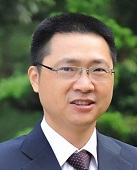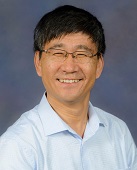Big Data lies at the center of modern science and technology, with major advances in analyzing & learning from Big Data concurrently reshaping human knowledge, society, and economy. The overwhelming amounts of data generated in many applications (fundamental sciences, cyber-physical systems, smart cities, sensor networks, and many more) alongside the urge for fast and effective handling and decision-making, in real-time, pose a number of significant challenges on the underlying system design and methods.
All the regular papers will be considered for the Best Paper Award.
All deadlines are at 11:59 PM Pacific Standard Time.
First Round:
Paper submission: February 18, 2023 March 4,2023
Author notification: March 15, 2023 March 29,2023
Camera Ready: March 30, 2023 April 10,2023 (Firm)
Second Round:
Paper submission: April 22, 2023 April 30,2023
Author notification: May 18, 2023
Camera Ready: May 30, 2023
Conference dates: August 4-6, 2023
Each paper will have a 12-minute presentation followed by a 3-minute Q&A.
According to the No Show policy of IEEE, each paper should be presented at the conference. We reserve the right to preclude authors who do not present their paper at the conference from having their papers published in IEEE Xplore.
Big Data lies at the center of modern science and technology, with major advances in analyzing & learning from Big Data concurrently reshaping human knowledge, society, and economy. The overwhelming amounts of data generated in many applications (fundamental sciences, cyber-physical systems, smart cities, sensor networks, and many more) alongside the urge for fast and effective handling and decision-making, in real-time, pose a number of significant challenges on the underlying system design and methods.
The 9th International Conference on Big Data Computing and Communications (BigCom2023), which is to be held on Aug. 4-6, 2023 in Qionghai, China. The conference aims to attract researchers and practitioners with interest in the theme of Big Data, in its broadest sense: analytics, management, security and privacy, communications, and high-performance computing. We welcome original, unpublished research papers that emphasize theoretical foundations, modeling, algorithmic methodologies, and data-driven applications in science and engineering. We also welcome visionary papers on new and emerging topics.
The related topics include but are not limited to:All deadlines are at 11:59 PM Pacific Standard Time.
First Round:
Paper submission: February 18, 2023 March 4,2023
Author notification: March 15, 2023 March 29,2023
Camera Ready: March 30, 2023 April 10,2023 (Firm)
Second Round:
Paper submission: April 22, 2023 April 30,2023
Author notification: May 18, 2023
Camera Ready: May 30, 2023
Conference dates: August 4-6, 2023
Review policy: Authors may choose either to include or to exclude their identify in the submission. The program committee members are instructed not to disadvantage a submission either way.
Papers that do not adhere to the following guidelines will be rejected without review:
The conference proceedings will be published by Conference Publishing Services (CPS) and submitted for indexing by EI. Selected papers will be recommended to publish at SCI-indexed journals.
For details please check Submit.General Co-Chairs:
Xiaoming Fu, Georg-August-University of Goettingen, Germany
Yusheng Ji, the National Institute of Informatics, Japan
TPC Co-Chairs:
Xiaowen Chu, Hong Kong Baptist University, China
Xianpeng Wang, Hainan University, China
Jiahui Hou, University of Science and Technology of China, China
TBA
Sponsorships TBA
General information about submitting papers to BigCom2023, including submission deadline dates, is available in the Call for Papers.
This page details the actual submission process, including the requirements for formatting your paper.
Submitted papers must be unpublished and must not be currently under review for any other publication.
Our proceedings will be published by Conference Publishing Services (CPS) and submitted for indexing by EI.
The selected papers will be recommended and published by SCIE journals.
Before submitting your paper, please check the description of the conference scope in the Call for Papers.
BigCom covers all issues in big data computing and communications on their theories and applications.
If you are unsure whether your work falls within the scope of the conference, please contact the corresponding track chairs.
Submitted papers must be written in the English language, with a maximum length limit of 8 printed pages, including figures, tables, appendices, and references.
Papers that do not comply with the length limit will not be reviewed.
Use the standard IEEE Transactions templates for Microsoft Word or LaTeX formats found at: https://www.ieee.org/conferences_events/conferences/publishing/templates.html.
If the paper is typeset in LaTeX, please use an unmodified version of the LaTeX template IEEEtran.cls version 1.8, and use the preamble:
\documentclass[10pt, conference, letterpaper]{IEEEtran}
Do not use additional LaTeX commands or packages to override and change the default typesetting choices in the template, including line spacing, font sizes, margins, space between the columns, and font types. This implies that the manuscript must use 10-point Times font, two-column formatting, as well as all default margins and line spacing requirements as dictated by the original version of IEEEtran.cls version 1.8.
If you are using Microsoft Word to format your paper, you should use an unmodified version of the Microsoft Word IEEE Transactions template (US letter size). Regardless of the source of your paper formatting, you must submit your paper in the Adobe PDF format.
The paper must print clearly and legibly, including all the figures, on standard black-and-white printers. Reviewers are not required to read your paper in color. The submitted manuscript should be self-contained within 8 pages. Inclusion of additional material (e.g., a technical report containing the detailed math proof through an anonymous Dropbox or OneDrive link) is not allowed.
Please be sure your paper is formatted properly for submission. In particular, please carefully follow all of the following formatting requirements:
| Early Bird (Before Jul. 20, 2023, 23:59:59) | Late (After Jul. 20, 2023, 23:59:59) | |
| Full Registration | USD 700 / RMB 5000 | USD 800 / RMB 5700 |
| Non-Student Registration | USD 700 / RMB 5000 | USD 800 / RMB 5700 |
| Student Registration | USD 350 / RMB 2500 | USD 400 / RMB 2850 |


|
Prof. Guoyin WangChongqing University of Posts and Telecommunications, China |
|
| Biography: Guoyin Wang (Senior Member, IEEE) received the B.S., M.S., and Ph.D. degrees in computer science and technology from Xi’an Jiaotong University, Xi’an, China, in 1992, 1994, and 1996, respectively.,He was a Visiting Scholar with the University of North Texas, Denton, TX, USA, and the University of Regina, Regina, SK, Canada, from 1998 to 1999. Since 1996, he has been with the Chongqing University of Posts and Telecommunications, Chongqing, China, where he is currently a Professor as well as the Vice President and the Director of the Chongqing Key Laboratory of Computational Intelligence. He was the Director of the Institute of Electronic Information Technology, Chongqing Institute of Green and Intelligent Technology, CAS, Chongqing, from 2011 to 2017. He has authored 12 books and he is the editor of dozens of proceedings of national and international conferences and has more than 200 reviewed research publications. His research interests include rough sets, granular computing, knowledge technology, data mining, neural networks, and cognitive computing.,Dr. Wang is a Fellow of the International Rough Set Society, the Chinese Association for Artificial Intelligence, and the China Computer Federation. | ||

|
Prof. Yuguang FangCity University of Hong Kong, Hong Kong, China |
|
| Biography: Yuguang “Michael” Fang received an MS degree in Mathematics from Qufu Normal University, Shandong, China in 1987, a PhD degree in Systems, Control and Industrial Engineering from Case Western Reserve University in 1994, and a PhD degree in Electrical and Computer Systems from Boston University in 1997. He joined the Department of Electrical and Computer Engineering at New Jersey Institute of Technology in 1998 as an assistant professor and then moved to the Department of Electrical and Computer Engineering at University of Florida in 2000 as an assistant professor, then was promoted to associate professor in 2003, full professor in 2005, and distinguished professor in 2019, respectively. Since August 2022, he has been the Chair Professor of Internet of Things with the Department of Computer Science at City University of Hong Kong. |